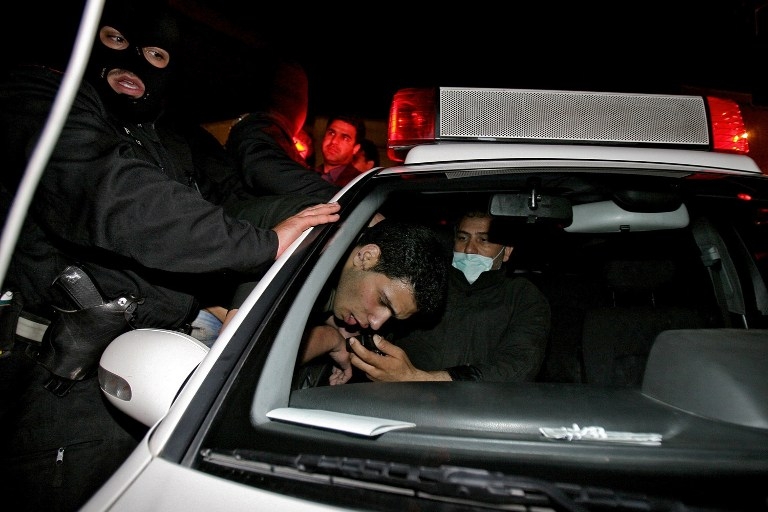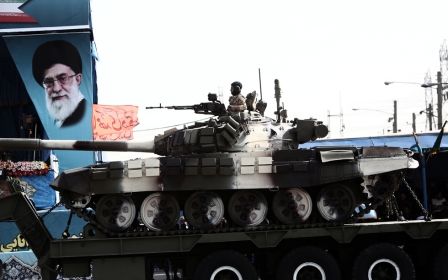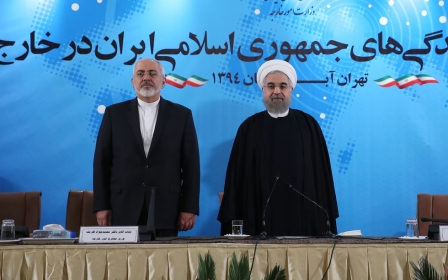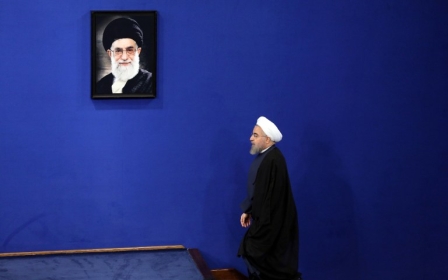Iranian morality police open new front in political row

As the summer season approaches Iranian judicial and police authorities, particularly in the Tehran metropolitan area, prepare to confront increasing infractions related to the country’s Islamic dress laws.
Whilst this has been an annual preoccupation since the 1979 Islamic Revolution, the decision to deploy up to 7,000 undercover agents to combat un-Islamic behaviour marks a significant departure from the norm.
Notwithstanding the new undercover force’s wide remit, which includes monitoring sexual harassment, noise pollution and vehicle-related stunts, there is little doubt that the bulk of its work will be focused on violations of the hijab or the female dress code.
Despite evidence of increasing levels of hijab-related infractions, including documented instances of deliberate and calculated violations of the law, the new initiative has drawn fire from government supporters for its potential to produce “adverse effects”.
Furthermore, the Rouhani administration and its supporters are fearful of the new undercover force’s potential to undercut their cultural outreach programmes and by extension their political prospects in the run-up to next year’s presidential elections.
Hijab enforcement: a losing battle?
Iranian authorities have been struggling for nearly four decades to fully apply the Islamic dress code, in particular the hijab for female citizens. By law Iranian women are required to dress modestly from head to toe and to above all cover their hair in public.
On the issue of hijab, enforcement there is a perennial struggle between the authorities and some segments of the female demographic, particularly amongst some young women in the affluent suburbs of Tehran. The latter are keen to push the boundaries by for instance wearing the headscarf in the loosest way possible.
Whilst instances of so-called mal-veiling (bad hejabi in Persian) is not strictly speaking against the law, nevertheless it draws a response from the morality police (Gashteh Ershad) in so far as it is interpreted as a deliberate snub to the country’s dominant cultural and religious values.
What is illegal of course is the removal of head covering altogether (kashfeh hejab in Persian), which until recently has been extremely rare to the point of non-existent. But internet-based campaigns such as “my stealthy freedom,” which encourage women to abandon the veil albeit momentarily, have worried the authorities even though there is no evidence of kashfeh hejab beyond isolated individual actions.
It is important to note that hijab enforcement, and related Islamic norms and standards on dressing and public conduct, is a foundational tenet of the Islamic Republic. The various organisations tasked with promoting and policing this issue, ranging from the state broadcaster to the judiciary and elements of law enforcement agencies, view the hijab as a strictly religious-legal matter that is above and beyond politics.
Whilst there is no evidence of any political motive or consequence in the act of mal-veiling and attempts to suppress it, it is reasonable to assume that harsh crackdowns by the morality police risks stoking resentment and alienation amongst segments of the urban youth demographic.
The judicial and law enforcement bodies appear to have heeded these concerns by framing the new stealthy morality squad as a purely monitoring and intelligence-gathering force. The new force has no powers of arrest and by definition the undercover agents cannot undertake any form of public intervention.
The Tehran police chief, Hossein Sajedinia, boldly claims that “public demand” had led to the formation of the undercover force and that the initiative is designed to enhance psychological and emotional security across society.
Despite these assurances, news of the new stealthy morality police immediately sparked opposition both from the government and elements of civil society. Not surprisingly the issue quickly escalated into a new front in the political battle between supporters and opponents of President Hassan Rouhani’s administration.
The political dimension
At a social level, many Iranian civil society activists reacted angrily at news of the deployment of the undercover morality police by drawing attention to the considerable resources dedicated to it. Some argued that the resources would be better spent by deploying undercover agents against corrupt officials.
At the political level, the Rouhani administration wasted no time in decrying the new stealthy initiative. President Rouhani himself led the charge by claiming that the latest morality-centred intervention risks undermining “people’s dignity”.
Rouhani’s vice-president for women and family affairs, Shahindokht Molaverdi vowed that the government would “review the proposed force,” as according to her, many citizens had complained about it. Incidentally the government cannot determine the operational decisions of the Tehran police force.
The fears of the government and the broad centrist-reformist coalition which underpins it may not be entirely misplaced. It is reasonable to speculate that beyond innovating new methods of combating immorality and public disorder, the establishment views the initiative as an effective means to counter recent political gains by the centrist-reformist coalition.
At a tactical level, it is noteworthy that the plainclothes morality force will only operate in the Tehran metropolitan area. From an electoral point of view this is a critical area and one where Rouhani allies won all 30 seats in the recent parliamentary elections.
By curtailing socio-cultural freedoms in the nation’s capital, and by triggering a concomitant depressive effect on the centrist-reformists’ natural constituency, the establishment may be attempting to forestall further political gains by Rouhani loyalists.
At a more expansive level, and in view of the experience of former president Mohammad Khatami’s reformist administration (1997-2005), the establishment is attempting to decouple reformist political gains from socio-cultural liberalisation.
The deep underlying message is that the Islamic Republic is determined to hold onto its foundational ideological and cultural values irrespective of shifting political sands.
- Mahan Abedin is an analyst of Iranian politics. He is the director of the research group Dysart Consulting.
The views expressed in this article belong to the author and do not necessarily reflect the editorial policy of Middle East Eye.
Photo: An Iranian policeman arrests a man during a morality crackdown in Tehran, on 18 May 2007 (AFP).
Middle East Eye propose une couverture et une analyse indépendantes et incomparables du Moyen-Orient, de l’Afrique du Nord et d’autres régions du monde. Pour en savoir plus sur la reprise de ce contenu et les frais qui s’appliquent, veuillez remplir ce formulaire [en anglais]. Pour en savoir plus sur MEE, cliquez ici [en anglais].





